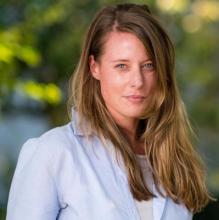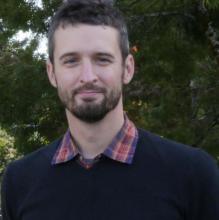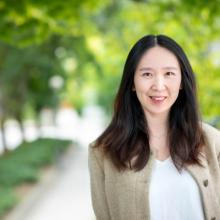Working with local NGOs, villagers and government officials in India, Devyani studies the climatic and forest resource impacts of a transition to clean energy. Her work provides policy solutions to current issues faced in estimating impacts on forest sustainability from these transitions. Devyani’s future plans are to keep working with communities and work on national and international climate policy.
Research Description
Worldwide 2-3 billion people rely on solid fuels for the majority of their energy needs. This reliance contributes to an array of social and environmental problems. For example, unsustainable wood harvesting may contribute to deforestation and forest degradation. Multiple analyses have identified the potential co-benefits (social, environmental, and climatic benefits) of introducing stove technologies, yet most interventions globally have not been successful due to high intervention costs. Additionally, impacts on forest resources and sustainability due to these interventions is not well known. Thus, I will study forest impacts of improved stove interventions and provide solutions to current issues with carbon credits for improved stoves so they can be a reliable source of funding for future programs.
What does being a Public Scholar mean to you?
As academics we often fall in the trap of peer reviewed jargon filled papers while forgetting to communicate our research with relevant parties. Too often we become isolated within lab environments and not work on answers to the most pressing issues facing communities, citizens, and environment. In contrast, a public scholar engages with local communities and partners to identify these local and policy-relevant issues, working in collaboration with them to come up with innovative solutions.
In what ways do you think the PhD experience can be re-imagined with the Public Scholars Initiative?
I hope that this initiative creates awareness about the changing face of a Ph.D. as many students now enter programs without the end goal of becoming an academic. The networking opportunities and connections with external organizations would help promote the changing face of the Ph.D. It provides an opportunity for the students to show how research can and should be communicated through non-traditional means with concerned parties.
How do you envision connecting your PhD work with broader career possibilities?
Working with local and international NGO’s and government officials has created a vast network for my research. Working on a multi university projects across countries has furthered my experience in challenges faced across borders, and the similarities in issues. I want my Ph.D. to inform my work with environmental finance climate policy organizations.
How does your research engage with the larger community and social partners?
My research questions were formed in collaboration with local communities, forest officials, and experts in the field. I work with local NGOs in the remote communities of India where we receive regular feedback from the households and government. With this information we are able to make necessary changes and adapt my research so that the most relevant questions for local communities are dealt with.
Why did you decide to pursue a graduate degree?
Even though I held an MBA in finance and worked for multiple Fortune 200 companies, my true passion lay in the environmental sciences and, in 2010, I finally decided to switch careers by enrolling for a M.Sc. in Environmental Science at The Ohio State University. Feeling highly motivated in the research environment I decided to continue on to a Ph.D. in energy access and climate policy at the Faculty of Forestry at UBC.
Why did you choose to come to British Columbia and study at UBC?
While researching the top environmental science programs for a Ph.D., I learned about the faculty of forestry at UBC, and a colleague informed me about a supervisor within the faculty who worked on interdisciplinary environmental research. I contacted my current supervisor who inspired me to use my corporate skills for future environmental conservation. The supervisor and the department seemed like a perfect fit, and within a few months I found myself pursuing my Ph.D. at a top forestry school.
Payments for Ecosystem Services provides a series of pathways to securing our survival in the face of climate change and I hope to make this process more efficient for future conservation efforts and for inclusion in international climate policy.




